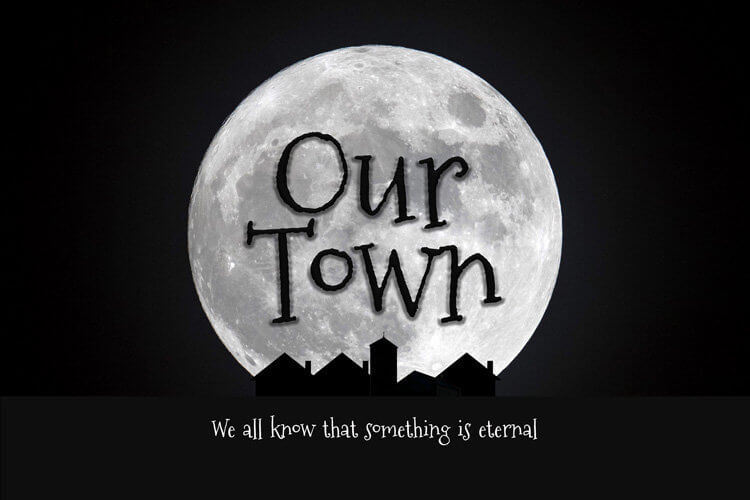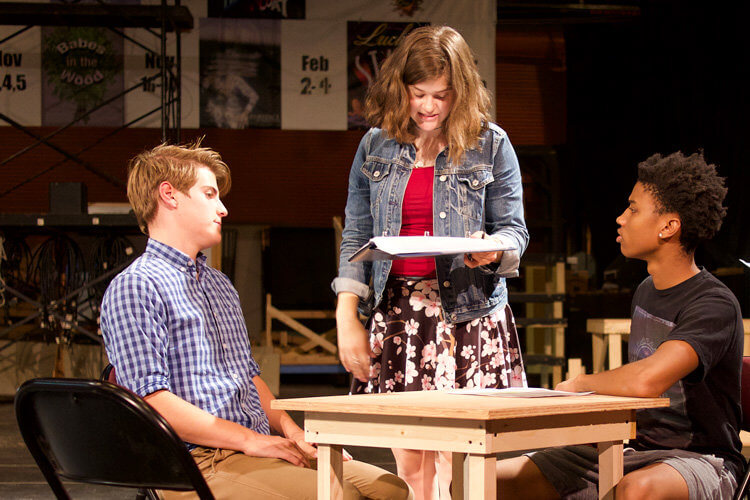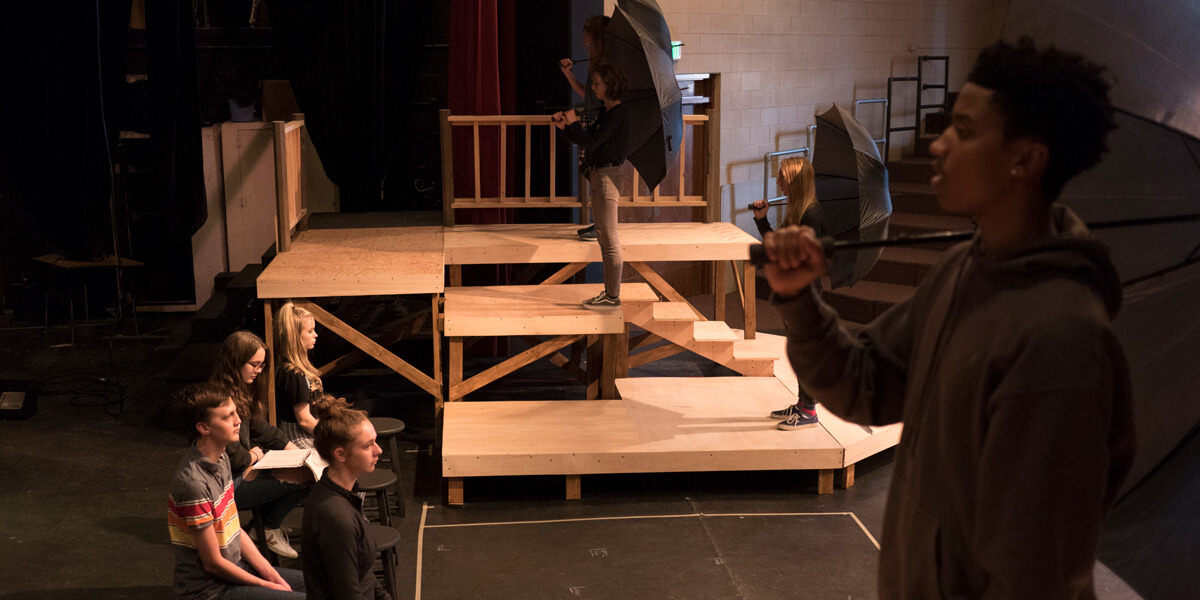This first weekend of November, The Conservatory of Theater will present Thornton Wilder’s beloved play—Our Town. The past two months have been a journey in the lives of these young actors at Colorado Academy, not only in their artistic study of this well-mastered text, but also in their understanding of the empathy and pathos inherent in the work, which takes us through the lives of the townspeople of Grover’s Corners, New Hampshire, at the turn of the twentieth century as the character of the Stage Manager tells us, in their growing up, in their marrying, in their living, and in their dying.
As a native New Englander and a director with an academic background in literature, I have come full circle with this play, and I am glad to share with our students what a revered professor once told me—that it is one of the two most important plays written in the English language, the other being King Lear. For our budding playwrights, it serves as a well-constructed template for how to tell a story in which words and actions matter, and the realization that an audience can be left with the same emotions and thoughts which become personalized by their individual perspectives. It is an intensely beautiful play, simple and true, yet unique in its complexity of nuanced meaning.


‘The choices we make’
The fact that our students have fallen in love with a work written back in 1938 is a testimony, not only to Wilder, but also to our students’ keen understanding and compassion for both the characters and the pulse of a text which explores the natural course of the passage of time, the choices we make, the challenges we face, and the people we love. It suggests a less-structured time, a less-contentious time, one which invokes a nostalgia, whether it truly existed or not, for a world like Yeats’s Byzantium, where all citizens are valued, accepted, and respected for their unique contributions to the community.
As our young actors play out the stories of Emily Webb and George Gibbs, they bring with them their 2018 reality and a freshness of perspective as to what makes this play timeless. They find themselves jumping into the shoes of a milkman, a paperboy, a country doctor, and a mother whose unrealized life dream has been to visit Paris, France. Then there are Emily, played by Junior Phoebe Cannon, the brightest girl in her class, who secretly laments she is elected treasurer, not president, dare I say because she is female, and George, Senior Justin Ferrugia, the boy set on going off to agricultural school, who remains home instead to take over his uncle’s farm and marry the person he is very fond of. Of the many profound truths in this play, the one that resounds with students is the inevitable passing of one generation to another, and the inescapable transience of this world for what is to come.
As we blocked Act III, there was not a sound in the theater after Emily, having chosen to come back to earth to relive her 12th birthday, realizes that what the Stage Manager has been telling her all along is painfully true— that she not only relives the day, but also sees herself reliving it, knowing what the rest of us cannot know. She knows the future. When she bids this world goodbye one final time, it is neither sad nor maudlin; however, she does not say goodbye to the possessions she acquired, or the awards she accrued, or the competitions she won. Rather, she says goodbye to clocks ticking, her butternut tree, to food and coffee and fresh ironed dresses and eating and waking up. There is one line that students say is most poignant. It is when Emily asks the Stage Manager if any human beings ever realize life while they live it—every, every minute. He answers with what is one of the most prophetic lines in American Theater—No—saints and poets, maybe—they do some.

“What is important here?’
It seems as though we are constantly asking ourselves as parents, teachers, and mentors, the question we demand from our students which is, what is important here? Beyond the study of the art of acting and theater production, our students have been musing over this question in a new way, not just as students and young artists, but also as mature and passionate human beings, who are soberly thinking about the choices they will make and the meaning their lives will hold, as well as how they will forge a true path with heart.
The magic of theater is and always will be this wonderful coming together for a brief intense period of time and working towards creating something communicative, in this case, something beautiful, which has the power to touch the lives of others. Our young actors perform with a genuine spirit that we, as adults, can only hope to emulate, and they will experience a bit of sadness when it is said and done. What is important here is that they, as an ensemble in which everyone is valued, have made this happen. They have joined the generational family of Our Town casts and will be able to stand up and be counted when someone mentions this play to them twenty years down the line. When I ask individual actors during scene rehearsals which ideas best define the spirit of the play, I hear these words—compassion, acceptance, hope, and love. They are also quite forthright in telling me that perhaps that is what our world needs most today.
As I watch our Seniors continue to grow in their last year of high school, I am reminded of the Stage Manager’s words at the beginning of the play, as he watches yet another New England dawn seep across Grover’s Corners. He stares up at one bright star and says, almost ruefully, “The mornin’ star always gets wonderful bright the minute before it has to go away.” As educators, we celebrate all these minutes with our students, as they do with each other. They are those morning stars, and they do shine—wonderful bright.
